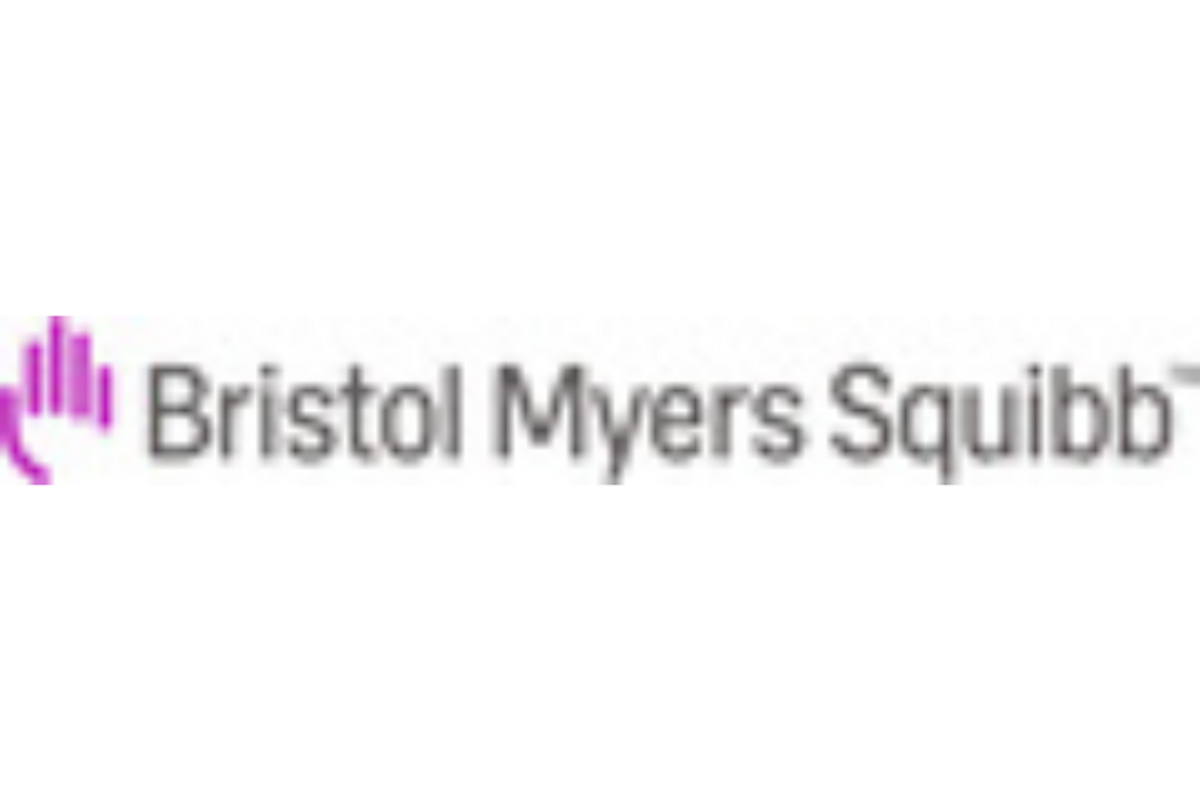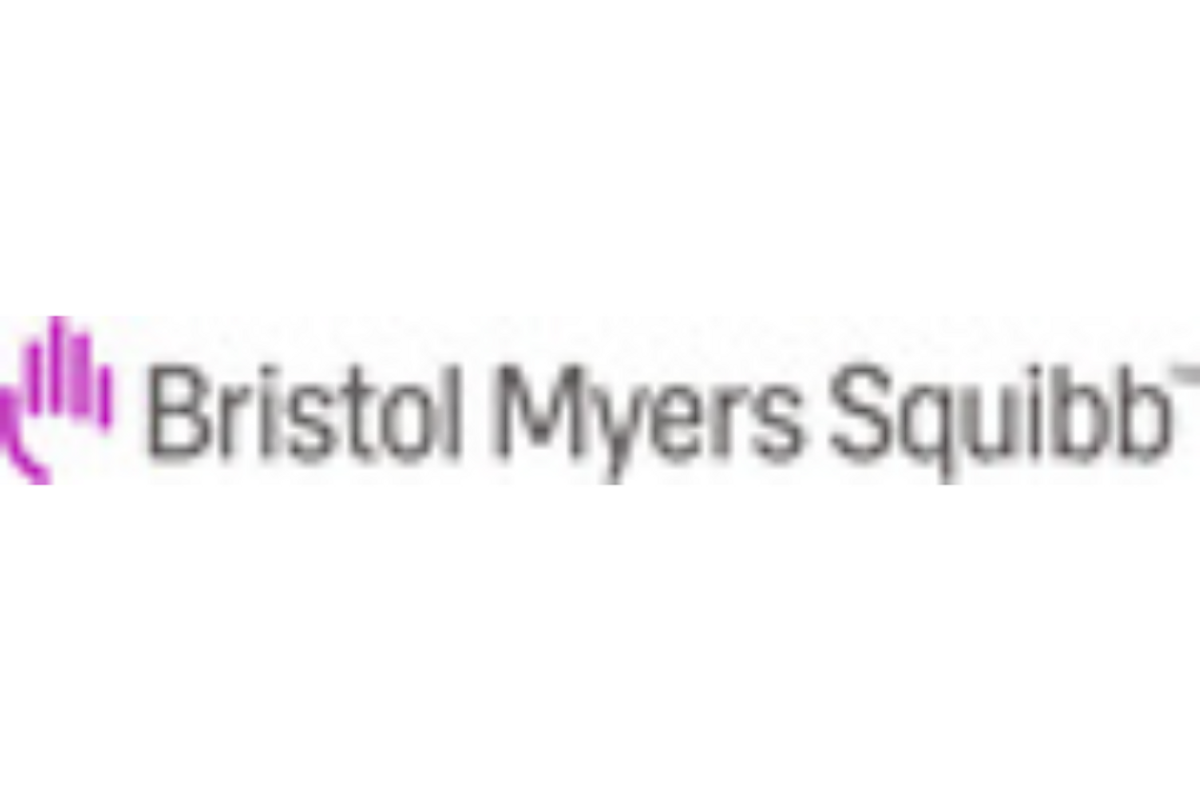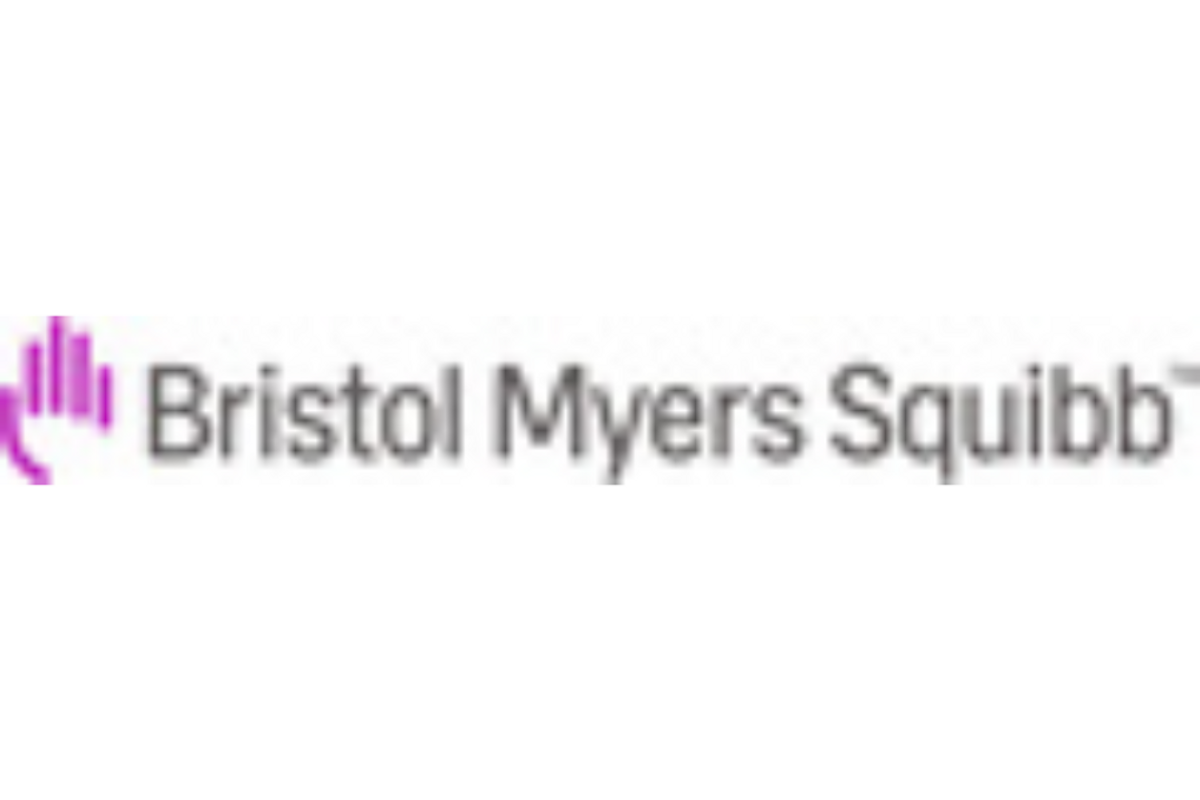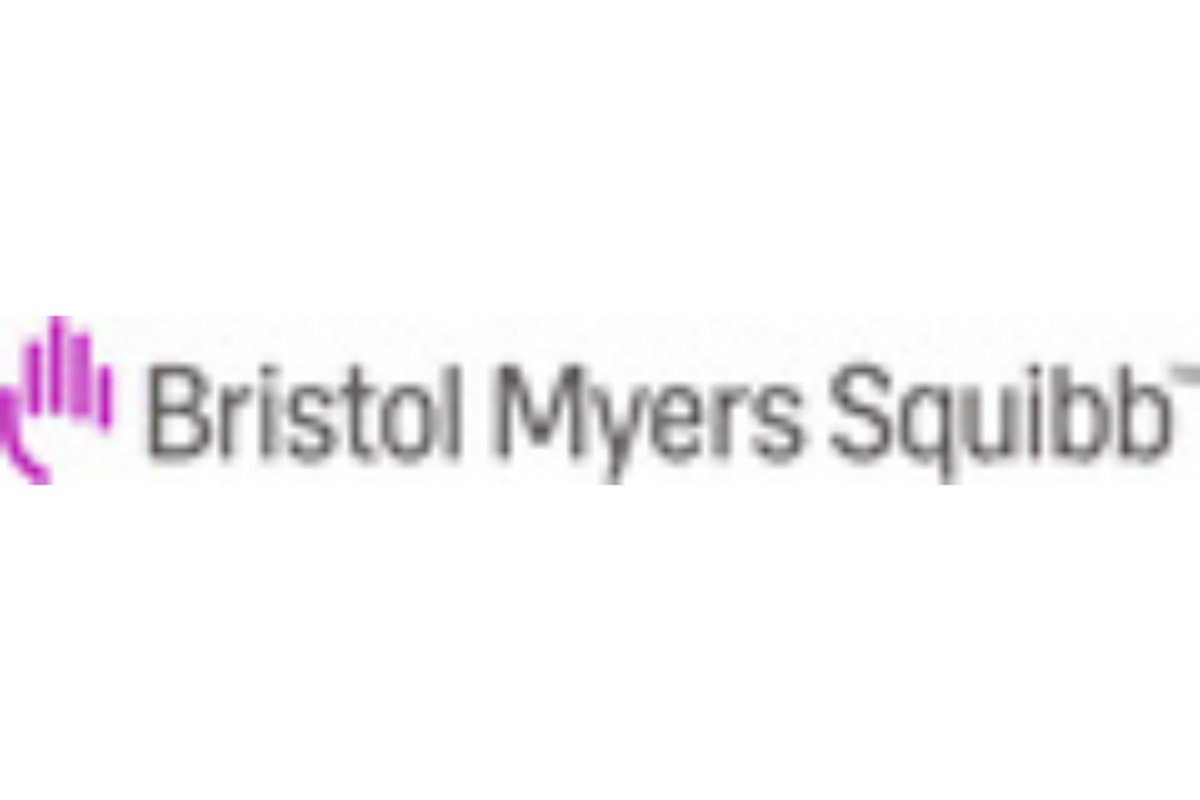Bristol Myers Squibb's Sotyktu , a first-in-class, oral, selective, allosteric tyrosine kinase 2 (TYK2) inhibitor, is the only approved TYK2 inhibitor worldwide and the first innovation in oral treatment for moderate-to-severe plaque psoriasis in nearly 10 years
Pivotal Phase 3 POETYK PSO clinical trials demonstrated superior efficacy of once-daily Sotyktu over placebo and twice-daily Otezla ® (apremilast) in improving skin clearance
Sotyktu has a well-demonstrated safety and tolerability profile based on the POETYK PSO clinical trials
Bristol Myers Squibb (NYSE: BMY) today announced that the U.S. Food and Drug Administration (FDA) approved Sotyktu ™ (deucravacitinib), a first-in-class, oral, selective, allosteric tyrosine kinase 2 (TYK2) inhibitor, for the treatment of adults with moderate-to-severe plaque psoriasis who are candidates for systemic therapy or phototherapy. 1,2 Sotyktu is not recommended for use in combination with other potent immunosuppressants.
This press release features multimedia. View the full release here: https://www.businesswire.com/news/home/20220817005643/en/
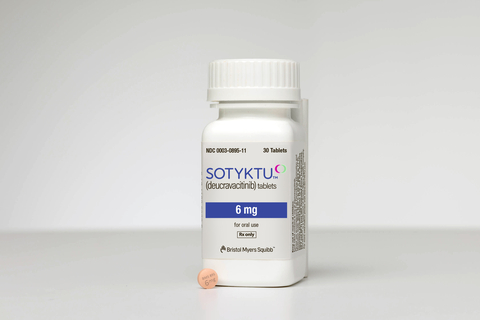
Product image. (Photo: Bristol Myers Squibb)
The approval is based on results from the pivotal Phase 3 POETYK PSO-1 and POETYK PSO-2 clinical trials, which demonstrated superior efficacy of once-daily Sotyktu compared to placebo and twice-daily Otezla ® (apremilast) in 1,684 patients aged 18 years and older with moderate-to-severe plaque psoriasis. 1 The superior efficacy of Sotyktu compared to placebo and Otezla was demonstrated at both 16 and 24 weeks, and responses with Sotyktu persisted through 52 weeks. See below for more information.
" Sotyktu has the potential to become the new standard of care oral treatment for people with moderate-to-severe plaque psoriasis, given its profile in helping patients achieve clearer skin as demonstrated in the POETYK PSO clinical program," said April Armstrong, MD, MPH, clinical investigator in the POETYK PSO-1 trial and Associate Dean and Professor of Dermatology at the University of Southern California. "People living with moderate-to-severe plaque psoriasis face significant burdens, and Sotyktu is a welcome first-line systemic treatment option."
Psoriasis is a widely prevalent, chronic, systemic immune-mediated disease that affects approximately 7.5 million people in the U.S. 3 Up to 90 percent of patients with psoriasis have plaque psoriasis, which is characterized by distinct, round or oval plaques typically covered by silvery white scales. Nearly one-quarter of people with psoriasis, or around two million in the U.S., have cases that are considered moderate-to-severe. 3
"The approval of Sotyktu represents an exciting day for patients suffering from moderate-to-severe plaque psoriasis who are not satisfied with topical and conventional treatments. This is another extraordinary achievement for Bristol Myers Squibb, as we bring forward a new mechanism of action, the first oral treatment approved in nearly 10 years, and the first orally dosed once-daily treatment for moderate-to-severe plaque psoriasis," said Samit Hirawat, MD, Chief Medical Officer, Bristol Myers Squibb. "We believe Sotyktu is a breakthrough in the treatment of patients with this condition, and we're excited about its potential in other immune-mediated diseases."
In the POETYK PSO trials, at Week 16, the most common adverse reactions (≥1 percent and higher than placebo) in patients on Sotyktu were upper respiratory infections (19.2 percent), blood creatine phosphokinase increase (2.7 percent), herpes simplex (2.0 percent), mouth ulcers (1.9 percent), folliculitis (1.7 percent) and acne (1.4 percent). 1 In addition, 2.4 percent of patients on Sotyktu , 3.8 percent of patients on placebo, and 5.2 percent of patients on Otezla experienced adverse reactions leading to discontinuation. 1,4
"Despite the availability of therapies, many people living with plaque psoriasis in the United States are untreated or undertreated, 5,6 " said Leah M. Howard, JD, President and CEO of the National Psoriasis Foundation. "The FDA approval of a new oral treatment is exciting news for the psoriasis community. We welcome this new treatment option."
Bristol Myers Squibb thanks the patients and investigators involved in the POETYK PSO clinical trial program. Sotyktu is expected to be available to patients in the U.S. in September 2022.
About POETYK PSO-1 and POETYK PSO-2
The pivotal Phase 3 POETYK PSO-1 and POETYK PSO-2 clinical trials evaluated the safety and efficacy of Sotyktu (6 mg once daily) compared to placebo and Otezla ® (apremilast) (30 mg twice daily) in patients with moderate-to-severe plaque psoriasis. Both were multi-national, multi-center, randomized, double-blind, placebo- and active comparator-controlled 52-week Phase 3 studies. POETYK PSO-2 included a randomized withdrawal and retreatment period after Week 24. In total, 664 patients were enrolled in POETYK PSO-1 and 1,020 patients were enrolled in POETYK PSO-2. All participants had moderate-to-severe plaque psoriasis and were candidates for phototherapy or systemic therapy. Patients had a body surface area involvement of ≥10 percent, a Psoriasis Area and Severity Index (PASI) score ≥12, and a static Physician's Global Assessment (sPGA) ≥3 (moderate or severe).
The co-primary endpoints of both POETYK PSO-1 and POETYK PSO-2 were the percentage of patients who achieved Psoriasis Area and Severity Index 75 and the percentage of patients who achieved static Physician's Global Assessment score of 0 or 1 at Week 16 versus placebo. Key secondary endpoints included the percentage of patients who achieved PASI 75, PASI 90 and sPGA 0/1 compared to Otezla at Week 16 and Week 24.
| POETYK PSO-1 (n=664) Results at Week 16 and Week 24 | ||||||
| Endpoint* | Time | Sotyktu 6 mg | Placebo | P-value vs. | Otezla | P-value vs. |
| PASI 75* a | Week 16 | 58%* | 13%* | P | 35% | P |
| Week 24 | 69% | - | - | 38% | P | |
| PASI 90 b | Week 16 | 36% | 4% | P | 20% | P=0.0002 |
| Week 24 | 42% | - | - | 22% | P | |
| sPGA 0/1* c | Week 16 | 54%* | 7%* | P | 32% | P |
| Week 24 | 59% | - | - | 31% | P | |
| POETYK PSO-2 (n=1,020) Results at Week 16 and Week 24 | ||||||
| Endpoint | Time | Sotyktu 6 mg | Placebo | P-value vs. | Otezla | P-value vs. |
| PASI 75* a | Week 16* | 53%* | 9%* | P | 40% | P=0.0004 |
| Week 24 | 58% | - | - | 38% | P | |
| PASI 90 b | Week 16 | 27% | 3% | P | 18% | P=0.0046 |
| Week 24 | 32% | - | - | 20% | P=0.0002 | |
| sPGA 0/1* c | Week 16* | 50%* | 9%* | P | 34% | P |
| Week 24 | 49% | - | - | 30% | P | |
*Co-primary endpoints for POETYK PSO-1 and POETYK PSO-2 were PASI 75 and sPGA 0/1 for Sotyktu vs. placebo at Week 16.
a. PASI 75 is defined as at least a 75% improvement from baseline in Psoriasis Area and Severity Index (PASI) scores.
b. PASI 90 is defined as at least a 90% improvement from baseline in Psoriasis Area and Severity Index (PASI) scores.
c. sPGA 0/1 is defined as a static Physician's Global Assessment (sPGA) score of clear or almost clear.
Responses persisted through Week 52, as 82 percent (187/228) of patients who achieved PASI 75 with Sotyktu at Week 24 maintained their response at Week 52 in POETYK PSO-1. In POETYK PSO-2, 80 percent (119/148) of patients who continued on Sotyktu maintained PASI 75 response compared to 31 percent (47/150) of patients who were withdrawn from Sotyktu .
Through Week 16, infections occurred in 29 percent of patients treated with Sotyktu compared to 22 percent of those treated with placebo. The majority of infections were non-serious and mild to moderate in severity and did not lead to discontinuation of Sotyktu . Serious infections were reported in five patients receiving Sotyktu and two patients treated with placebo. Through Week 52, the most common serious infections reported were pneumonia and COVID-19. Malignancies (excluding non-melanoma skin cancer) were reported in three patients treated with Sotyktu .
About Psoriasis
Psoriasis is a widely prevalent, chronic, systemic immune-mediated disease that substantially impairs patients' physical health, quality of life and work productivity. 7 Psoriasis is a serious global problem, with at least 100 million people worldwide impacted by some form of the disease, 8 including approximately 7.5 million people in the U.S. 3 Nearly one-quarter of people with psoriasis have cases that are considered moderate-to-severe. 3 Up to 90 percent of patients with psoriasis have psoriasis vulgaris, or plaque psoriasis, 6 which is characterized by distinct round or oval plaques typically covered by silvery-white scales.
About Sotyktu TM
Sotyktu™ (deucravacitinib) is a selective, allosteric inhibitor of tyrosine kinase 2 (TYK2). TYK2 is a member of the Janus kinase (JAK) family. Sotyktu binds to the regulatory domain of TYK2, stabilizing an inhibitory interaction between the regulatory and the catalytic domains of the enzyme. This results in allosteric inhibition of receptor-mediated activation of TYK2 and its downstream activation of Signal Transducers and Activators of Transcription (STATs) as shown in cell-based assays. Janus kinases function as pairs of homo- or heterodimers in the JAK-STAT pathways. TYK2 pairs with JAK1 to mediate multiple cytokine pathways and also pairs with JAK2 to transmit signals as shown in cell-based assays. The precise mechanism linking inhibition of TYK2 enzyme to therapeutic effectiveness in the treatment of adults with moderate-to-severe plaque psoriasis is not currently known.
Sotyktu is under regulatory review by the European Medical Association and other health authorities around the world for the treatment of moderate-to-severe plaque psoriasis and by Japan's Ministry of Health, Labour and Welfare for the treatment of adults with moderate-to-severe plaque psoriasis, pustular psoriasis and erythrodermic psoriasis.
INDICATION
SOTYKTU™ (deucravacitinib) is indicated for the treatment of moderate-to-severe plaque psoriasis in adults who are candidates for systemic therapy or phototherapy.
Limitations of Use:
SOTYKTU is not recommended for use in combination with other potent immunosuppressants.
IMPORTANT SAFETY INFORMATION
CONTRAINDICATIONS
SOTYKTU is contraindicated in patients with a history of hypersensitivity reaction to deucravacitinib or to any of the excipients in SOTYKTU.
WARNINGS AND PRECAUTIONS
Hypersensitivity: Hypersensitivity reactions such as angioedema have been reported. If a clinically significant hypersensitivity reaction occurs, institute appropriate therapy and discontinue SOTYKTU.
Infections: SOTYKTU may increase the risk of infections. Serious infections have been reported in patients with psoriasis who received SOTYKTU. The most common serious infections reported with SOTYKTU included pneumonia and COVID-19. Avoid use of SOTYKTU in patients with an active or serious infection. Consider the risks and benefits of treatment prior to initiating SOTYKTU in patients:
- with chronic or recurrent infection
- who have been exposed to tuberculosis
- with a history of a serious or an opportunistic infection
- with underlying conditions that may predispose them to infection.
Closely monitor patients for the development of signs and symptoms of infection during and after treatment. A patient who develops a new infection during treatment should undergo prompt and complete diagnostic testing, have appropriate antimicrobial therapy initiated and be closely monitored. Interrupt SOTYKTU if a patient develops a serious infection. Do not resume SOTYKTU until the infection resolves or is adequately treated.
Viral Reactivation
Herpes virus reactivation (e.g., herpes zoster, herpes simplex) was reported in clinical trials with SOTYKTU. Through Week 16, herpes simplex infections were reported in 17 patients (6.8 per 100 patient-years) treated with SOTYKTU, and 1 patient (0.8 per 100 patient-years) treated with placebo. Multidermatomal herpes zoster was reported in an immunocompetent patient. During PSO-1, PSO-2, and the open-label extension trial, the majority of patients who reported events of herpes zoster while receiving SOTYKTU were under 50 years of age. The impact of SOTYKTU on chronic viral hepatitis reactivation is unknown. Consider viral hepatitis screening and monitoring for reactivation in accordance with clinical guidelines before starting and during therapy with SOTYKTU. If signs of reactivation occur, consult a hepatitis specialist. SOTYKTU is not recommended for use in patients with active hepatitis B or hepatitis C.
Tuberculosis (TB): In clinical trials, of 4 patients with latent TB who were treated with SOTYKTU and received appropriate TB prophylaxis, no patients developed active TB (during the mean follow-up of 34 weeks). One patient, who did not have latent TB, developed active TB after receiving 54 weeks of SOTYKTU. Evaluate patients for latent and active TB infection prior to initiating treatment with SOTYKTU. Do not administer SOTYKTU to patients with active TB. Initiate treatment of latent TB prior to administering SOTYKTU. Consider anti-TB therapy prior to initiation of SOTYKTU in patients with a past history of latent or active TB in whom an adequate course of treatment cannot be confirmed. Monitor patients for signs and symptoms of active TB during treatment.
Malignancy including Lymphomas: Malignancies, including lymphomas, were observed in clinical trials with SOTYKTU. Consider the benefits and risks for the individual patient prior to initiating or continuing therapy with SOTYKTU, particularly in patients with a known malignancy (other than a successfully treated non-melanoma skin cancer) and patients who develop a malignancy when on treatment with SOTYKTU.
Rhabdomyolysis and Elevated CPK: Treatment with SOTYKTU was associated with an increased incidence of asymptomatic creatine phosphokinase (CPK) elevation and rhabdomyolysis compared to placebo.
Discontinue SOTYKTU if markedly elevated CPK levels occur or myopathy is diagnosed or suspected. Instruct patients to promptly report unexplained muscle pain, tenderness or weakness, particularly if accompanied by malaise or fever.
Laboratory Abnormalities: Treatment with SOTYKTU was associated with increases in triglyceride levels. Periodically evaluate serum triglycerides according to clinical guidelines during treatment. SOTYKTU treatment was associated with an increase in the incidence of liver enzyme elevation compared to placebo. Evaluate liver enzymes at baseline and thereafter in patients with known or suspected liver disease according to routine management. If treatment-related increases in liver enzymes occur and drug-induced liver injury is suspected, interrupt SOTYKTU until a diagnosis of liver injury is excluded.
Immunizations: Prior to initiating therapy with SOTYKTU, consider completion of all age-appropriate immunizations according to current immunization guidelines including prophylactic herpes zoster vaccination. Avoid use of live vaccines in patients treated with SOTYKTU. The response to live or non-live vaccines has not been evaluated.
Potential Risks Related to JAK Inhibition: It is not known whether tyrosine kinase 2 (TYK2) inhibition may be associated with the observed or potential adverse reactions of Janus Kinase (JAK) inhibition. In a large, randomized, postmarketing safety trial of a JAK inhibitor in rheumatoid arthritis (RA), patients 50 years of age and older with at least one cardiovascular risk factor, higher rates of all-cause mortality, including sudden cardiovascular death, major adverse cardiovascular events, overall thrombosis, deep venous thrombosis, pulmonary embolism, and malignancies (excluding non-melanoma skin cancer) were observed in patients treated with the JAK inhibitor compared to those treated with TNF blockers. SOTYKTU is not approved for use in RA.
ADVERSE REACTIONS
Most common adverse reactions (≥1% of patients on SOTYKTU and more frequently than with placebo) include upper respiratory infections, blood creatine phosphokinase increased, herpes simplex, mouth ulcers, folliculitis and acne.
SPECIFIC POPULATIONS
Pregnancy: Available data from case reports on SOTYKTU use during pregnancy are insufficient to evaluate a drug-associated risk of major birth defects, miscarriage, or adverse maternal or fetal outcomes. Report pregnancies to the Bristol-Myers Squibb Company's Adverse Event reporting line at 1-800-721-5072.
Lactation: There are no data on the presence of SOTYKTU in human milk, the effects on the breastfed infant, or the effects on milk production. SOTYKTU is present in rat milk. When a drug is present in animal milk, it is likely that the drug will be present in human milk. The developmental and health benefits of breastfeeding should be considered along with the mother's clinical need for SOTYKTU and any potential adverse effects on the breastfed infant from SOTYKTU or from the underlying maternal condition.
Hepatic Impairment: SOTYKTU is not recommended for use in patients with severe hepatic impairment.
SOTYKTU is available in 6 mg tablets.
Please see U.S. Full Prescribing Information , including Medication Guide , for SOTYKTU.
About Bristol Myers Squibb's Patient Access Support
Bristol Myers Squibb remains committed to providing assistance so that patients who need our medicines can access them and expedite time to therapy.
Bristol Myers Squibb offers various programs and resources to support access to therapies, including SOTYKTU, through our SOTYKTU 360 SUPPORT program. For additional information, call SOTYKTU 360 SUPPORT at 1-888-SOTYKTU (1-888-768-9588) 8 a.m. to 11 p.m. ET, Monday through Friday.
About Bristol Myers Squibb
Bristol Myers Squibb is a global biopharmaceutical company whose mission is to discover, develop and deliver innovative medicines that help patients prevail over serious diseases. For more information about Bristol Myers Squibb, visit us at BMS.com or follow us on LinkedIn , Twitter , YouTube , Facebook and Instagram .
Otezla ® (apremilast) is a registered trademark of Amgen Inc.
Cautionary Statement Regarding Forward-Looking Statements
This press release contains "forward-looking statements" within the meaning of the Private Securities Litigation Reform Act of 1995 regarding, among other things, the research, development and commercialization of pharmaceutical products. All statements that are not statements of historical facts are, or may be deemed to be, forward-looking statements. Such forward-looking statements are based on current expectations and projections about our future financial results, goals, plans and objectives and involve inherent risks, assumptions and uncertainties, including internal or external factors that could delay, divert or change any of them in the next several years, that are difficult to predict, may be beyond our control and could cause our future financial results, goals, plans and objectives to differ materially from those expressed in, or implied by, the statements. These risks, assumptions, uncertainties and other factors include, among others, whether SOTYKTU™(deucravacitinib) will be commercially successful, any marketing approvals, if granted, may have significant limitations on their use, and that continued approval of SOTYKTU™ (deucravacitinib) may be contingent upon verification and description of clinical benefit in confirmatory trials. No forward-looking statement can be guaranteed. Forward-looking statements in this press release should be evaluated together with the many risks and uncertainties that affect Bristol Myers Squibb's business and market, particularly those identified in the cautionary statement and risk factors discussion in Bristol Myers Squibb's Annual Report on Form 10-K for the year ended December 31, 2021, as updated by our subsequent Quarterly Reports on Form 10-Q, Current Reports on Form 8-K and other filings with the Securities and Exchange Commission. The forward-looking statements included in this document are made only as of the date of this document and except as otherwise required by applicable law, Bristol Myers Squibb undertakes no obligation to publicly update or revise any forward-looking statement, whether as a result of new information, future events, changed circumstances or otherwise.
References
1 SOTYKTU Prescribing Information. SOTYKTU U.S. Product Information. September 2022. Princeton, N.J.: Bristol-Myers Squibb Company.
2 Chimalakonda A, Burke J, Cheng L, et al. Selectivity profile of the tyrosine kinase 2 inhibitor deucravacitinib compared with janus kinase 1/2/3 inhibitors. Dermatol Ther (Heidelb) 2021;11(5):1763–1776. doi: 10.1007/s13555-021-00596-8.
3 Armstrong AW, Mehta MD, Schupp CW, et al. Psoriasis prevalence in adults in the United States. JAMA Dermatol. Published online June 30, 2021. doi:10.1001/jamadermatol.2021.2007.
4 Armstrong A, Gooderham M, Warren RB, et al. Deucravacitinib versus placebo and apremilast in moderate to severe plaque psoriasis: efficacy and safety results from the 52-week, randomized, double-blinded, placebo-controlled phase 3 POETYK PSO-1 trial, Journal of the American Academy of Dermatology (2022), doi: https://doi.org/10.1016/j.jaad.2022.07.002 .
5 Lebwohl M, Langley RG, Paul C, et al. Evolution of patient perceptions of psoriatic disease: results from the Understanding Psoriatic Disease Leveraging Insights for Treatment (UPLIFT) survey. Dermatol Ther (Heidelb). 2022;12(1):61-78. Doi: 10.1007/s13555-021-00635-4.
6 Menter A, Gottlieb A, Feldman SR, Van Voorhees AS et al. Guidelines of care for the management of psoriasis and psoriatic arthritis: Section 1. Overview of psoriasis and guidelines of care for the treatment of psoriasis with biologics. J Am Acad Dermatol . 2008 May;58(5):826-50.
7 Armstrong AW, Schupp C, Wu J, Bebo B. Quality of life and work productivity impairment among psoriasis patients: findings from the National Psoriasis Foundation survey data 2003–2011. PloS One. 2012;7(12):e52935.
8 World Health Organization. Global report on psoriasis. 2016. Accessed May 12, 2022. https://apps.who.int/iris/bitstream/handle/10665/204417/9789241565189_eng.pdf.psoriasis?sequence=1
corporatefinancial-news
View source version on businesswire.com: https://www.businesswire.com/news/home/20220817005643/en/
Bristol Myers Squibb
Media Inquiries:
media@bms.com
Investors:
investor.relations@bms.com
